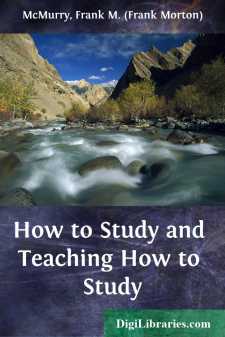Categories
- Antiques & Collectibles 13
- Architecture 36
- Art 48
- Bibles 22
- Biography & Autobiography 813
- Body, Mind & Spirit 142
- Business & Economics 28
- Children's Books 15
- Children's Fiction 12
- Computers 4
- Cooking 94
- Crafts & Hobbies 4
- Drama 346
- Education 46
- Family & Relationships 57
- Fiction 11828
- Games 19
- Gardening 17
- Health & Fitness 34
- History 1377
- House & Home 1
- Humor 147
- Juvenile Fiction 1873
- Juvenile Nonfiction 202
- Language Arts & Disciplines 88
- Law 16
- Literary Collections 686
- Literary Criticism 179
- Mathematics 13
- Medical 41
- Music 40
- Nature 179
- Non-Classifiable 1768
- Performing Arts 7
- Periodicals 1453
- Philosophy 64
- Photography 2
- Poetry 896
- Political Science 203
- Psychology 42
- Reference 154
- Religion 513
- Science 126
- Self-Help 84
- Social Science 81
- Sports & Recreation 34
- Study Aids 3
- Technology & Engineering 59
- Transportation 23
- Travel 463
- True Crime 29
Fifty-Two Story Talks to Boys and Girls
Description:
Excerpt
INTRODUCTION
In a certain Western university the president receives a salary of ten thousand dollars a year for training young men and young women, while not many miles distant from that university is a stock-farm the superintendent of which receives a salary of twelve thousand dollars for training high-bred colts. That colt-trainer is at hand when the colt is foaled, and before it rises to its feet has rubbed down its head and put a halter upon it, so that from birth it shall be accustomed to the feeling of the halter.
From that time the training of the colt is not suspended for a moment. If in training it to travel in harness a piece of paper should blow across the training-course, causing the colt to shy, an assistant holds the paper on the opposite side of the road, so that the animal shall have the kink taken out of its nervous system and its tendency to shy again in the same direction be at once corrected.
The old method was to allow a colt to run wild until two or three years of age, then "break it in." The result was apt to be either a "cowed" animal or a nervous horse.
Would that we were manifesting as much wisdom in the religious training of our children as that horse-trainer. But unfortunately we are pursuing largely the old method, allowing our children to get full of all sorts of mental kinks up through those first plastic three or four years, and then handing them over to the church kindergarten-teacher for one hour a week, expecting her to straighten out all these aberrations and give back to the parents a normally religious child.
Many parents seem to assume that the child's brain is lying dormant during those first few years, when, as a matter of fact, the child's mind during these years is most receptive, and expanding at a rate never after equalled. The nervous system is receiving impressions which, though in after-years the child has no conscious memory of it, are yet indelibly chiselled there for good or ill.
It is high time that parents and religious teachers took more cognizance than they do of this fact.
There are other parents who deliberately refuse to give their children any religious training during this period for fear of "unduly influencing" them from the religious standpoint. This point of view is stated, whether seriously or not, in the following quotation from a recent writer: "I think it is a bad thing to be what is known as 'brought up,' don't you? Why should we—poor, helpless little children, all soft and resistless—be squeezed and jammed into the iron bands of parental points of view? Why should we have points of view at all? Why not for those few divine years when we are still so near God, leave us just to wonder? We are not given a chance. On our pulpy little minds our parents carve their opinions, and the mass slowly hardens, and all those deep, narrow, up-and-down strokes harden with it, and the first thing the best of us have to do on growing up is to waste precious time beating at the things, to try to get them out. Surely the child of the most admirable and wise parents is richer with his own faulty but original point of view than he would be fitted out with the choicest selections of maxims and conclusions that he did not have to think out for himself. I could never be a schoolmistress. I should be afraid to teach the children. They know more than I do. They know how to be happy, how to live from day to day, in godlike indifference to what may come next. And is not trying to be happy the secret we spend our lives trying to guess? Why, then, should I, by forcing them to look through my stale eyes, show them, as through a dreadful magnifying-glass, the terrific possibilities, the cruel explosiveness of what they had been lightly tossing across the daisies, and thinking they were only toys?"
All of which sounds very pretty, but when simmered down, the wisdom, if wisdom it be, of a statement like that can be compressed into the old adage, "Where ignorance is bliss 'tis folly to be wise." But the point is that the world has pretty generally come to the conclusion that bliss is not necessarily the most healthful thing, either for adults or children....












